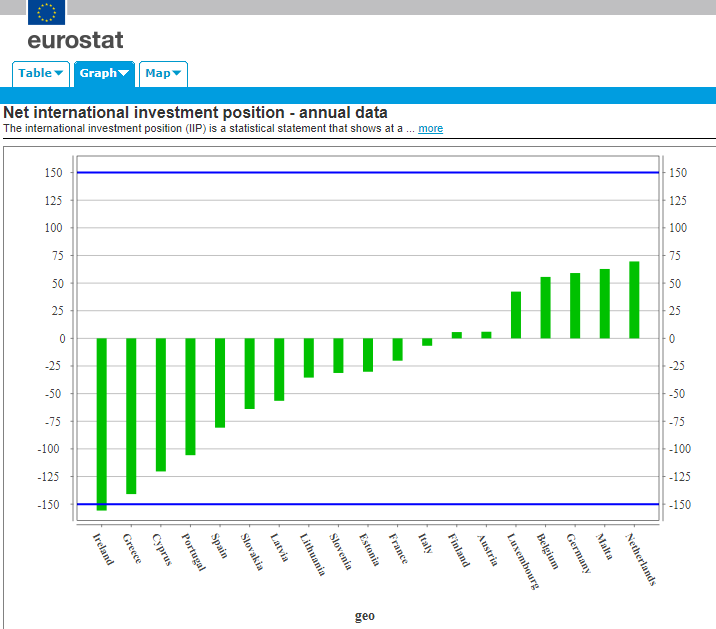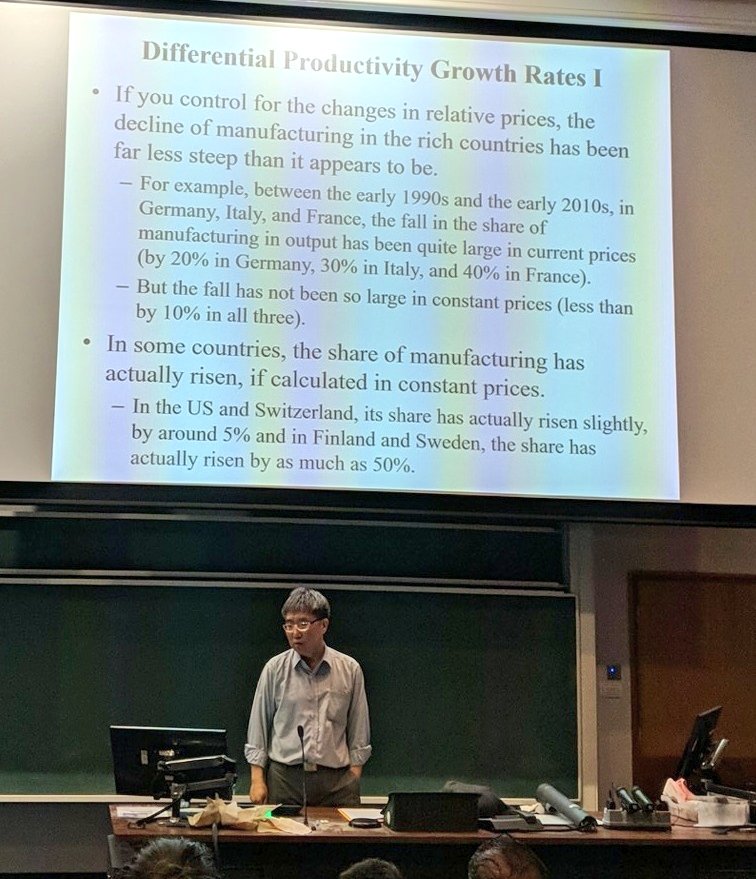IMF Paper On How Export Sophistication Is The Determinant Of Growth
Missed this working paper Sharp Instrument: A Stab At Identifying The Causes Of Economic Growth from May 2018 from three IMF authors with an impressive conclusion.
From the abstract
We find that export sophistication is the only robust determinant of growth among standard growth determinants such as human capital, trade, financial development, and institutions. Our results suggest that other growth determinants may be important to the extent they help improve export sophistication.
Note, not only is it saying that it is robust but that other factors are important as long as they improve export sophistication.
Cambridge Keynesians were clear on this. Here’s Wynne Godley in a 1993 article Time, Increasing Returns And Institutions In Macroeconomics, in Market And Institutions In Economic Development: Essays In Honour Of Paolo Sylos Labini, page 79:
… In the long period it will be the success or failure of corporations, with or without active help from governments, to compete in world markets which will govern the rise and fall of nations.
and Nicholas Kaldor in Causes Of Growth And Stagnation In The World Economy, first published in 1996 and based on lectures given in 1984:
The growth of a country’s exports thus appears to be the most important factor in determining its rate of progress, and this depends on the outcome of the efforts of its producers to seek out potential markets and to adapt their product structure accordingly. The income elasticity of foreign countries for a particular country’s products is mainly determined by the innovative ability and the adaptive capacity of its manufacturers. In the industrially developed countries, high income elasticities for exports and low income elasticities for imports frequently go together, and they both reflect successful leadership in product development. Technical progress is a continuous process and it largely takes the form of the development and marketing of new products which provide a new and preferable way of satisfying some existing want. Such new products, if successful, gradually replace previously existing products which serve the same needs, and in the course of this process of replacement, the demand for the new product increases out of all proportion to the general increase in demand resulting from economic growth itself. Hence the most successful exporters are able to achieve increasing penetration, both in foreign markets and in home markets, because their products go to replace existing products.
[italics: mine]
The IMF paper is surprising, since the IMF believes in free trade in which market mechanisms work to achieve convergence in fortunes of nations, so exports is hardly important.




